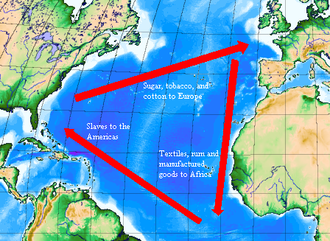Mercantilism






Mercantilism is an economic theory and practice that was prominent in Europe from the 16th to the 18th century. It advocates for a strong, centralized national government that exercises strict control over its economy, particularly in terms of foreign trade. The theory holds that the wealth of a nation is primarily measured in terms of its stock of gold and silver, which are enhanced through a positive balance of trade with other nations.
Origins and Development[edit]
Mercantilism developed at a time when the European economy was in transition from the feudal system to a more market-oriented economy. It was influenced by the rise of nation-states and the desire of these emerging entities to consolidate their resources and power. The theory was never codified into a single doctrine but was rather a series of related ideas promoted by merchants, policymakers, and writers of the time.
Key Principles[edit]
The key principles of mercantilism include:
- Accumulation of Precious Metals: Mercantilists believed that national wealth and power were best increased through the accumulation of gold and silver.
- Favorable Balance of Trade: To accumulate precious metals, a country must export more than it imports, achieving a favorable balance of trade.
- Government Intervention: Mercantilists advocated for strong government intervention in the economy to protect domestic industries and control foreign trade.
- Colonialism: Colonies were seen as sources of raw materials and markets for finished goods, integral to maintaining a favorable balance of trade.
- Manufacturing and Industry: Encouragement of domestic manufacturing and industry was a key policy to reduce imports and increase exports.
Impact and Criticism[edit]
Mercantilism played a significant role in shaping the economic policies of European powers during the colonial era. It led to the establishment of colonies, trade monopolies, and navigation acts designed to control trade and enhance national wealth. However, mercantilism has been criticized for leading to colonial exploitation, trade wars, and neglect of domestic consumption and welfare.
The theory was eventually challenged and replaced by classical economics, particularly the ideas of Adam Smith who argued against mercantilism's restrictive trade practices and in favor of free trade in his seminal work, The Wealth of Nations.
Legacy[edit]
Despite its decline, the legacy of mercantilism is still evident in modern economic policies that emphasize national economic security, protectionism, and the strategic importance of certain industries. The debate over the merits of protectionism versus free trade continues to be influenced by mercantilist ideas.
Ad. Transform your life with W8MD's Budget GLP-1 injections from $75


W8MD offers a medical weight loss program to lose weight in Philadelphia. Our physician-supervised medical weight loss provides:
- Weight loss injections in NYC (generic and brand names):
- Zepbound / Mounjaro, Wegovy / Ozempic, Saxenda
- Most insurances accepted or discounted self-pay rates. We will obtain insurance prior authorizations if needed.
- Generic GLP1 weight loss injections from $75 for the starting dose.
- Also offer prescription weight loss medications including Phentermine, Qsymia, Diethylpropion, Contrave etc.
NYC weight loss doctor appointmentsNYC weight loss doctor appointments
Start your NYC weight loss journey today at our NYC medical weight loss and Philadelphia medical weight loss clinics.
- Call 718-946-5500 to lose weight in NYC or for medical weight loss in Philadelphia 215-676-2334.
- Tags:NYC medical weight loss, Philadelphia lose weight Zepbound NYC, Budget GLP1 weight loss injections, Wegovy Philadelphia, Wegovy NYC, Philadelphia medical weight loss, Brookly weight loss and Wegovy NYC
|
WikiMD's Wellness Encyclopedia |
| Let Food Be Thy Medicine Medicine Thy Food - Hippocrates |
Medical Disclaimer: WikiMD is not a substitute for professional medical advice. The information on WikiMD is provided as an information resource only, may be incorrect, outdated or misleading, and is not to be used or relied on for any diagnostic or treatment purposes. Please consult your health care provider before making any healthcare decisions or for guidance about a specific medical condition. WikiMD expressly disclaims responsibility, and shall have no liability, for any damages, loss, injury, or liability whatsoever suffered as a result of your reliance on the information contained in this site. By visiting this site you agree to the foregoing terms and conditions, which may from time to time be changed or supplemented by WikiMD. If you do not agree to the foregoing terms and conditions, you should not enter or use this site. See full disclaimer.
Credits:Most images are courtesy of Wikimedia commons, and templates, categories Wikipedia, licensed under CC BY SA or similar.
Translate this page: - East Asian
中文,
日本,
한국어,
South Asian
हिन्दी,
தமிழ்,
తెలుగు,
Urdu,
ಕನ್ನಡ,
Southeast Asian
Indonesian,
Vietnamese,
Thai,
မြန်မာဘာသာ,
বাংলা
European
español,
Deutsch,
français,
Greek,
português do Brasil,
polski,
română,
русский,
Nederlands,
norsk,
svenska,
suomi,
Italian
Middle Eastern & African
عربى,
Turkish,
Persian,
Hebrew,
Afrikaans,
isiZulu,
Kiswahili,
Other
Bulgarian,
Hungarian,
Czech,
Swedish,
മലയാളം,
मराठी,
ਪੰਜਾਬੀ,
ગુજરાતી,
Portuguese,
Ukrainian
